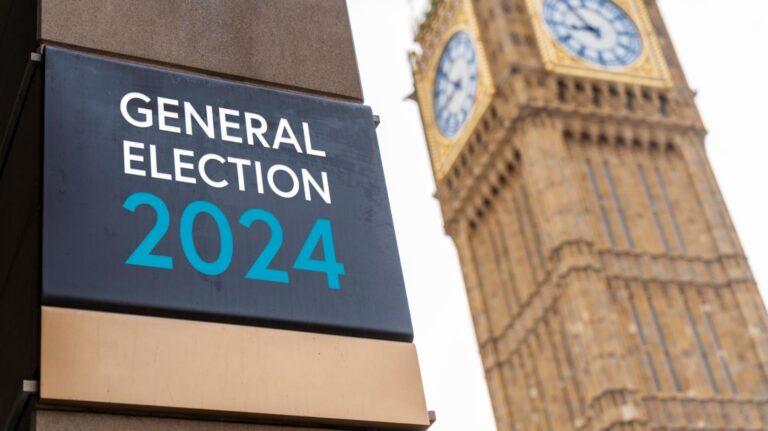The Labour party has been elected in the 2024 general election, winning 412 seats so far, a gain of 213 compared to the 2019 election results. As of the time this story was published, 642 of 650 seats have been declared.
On X, party leader and newly-elected prime minister Sir Keir Starmer, said: “We said we will stop the chaos. And we will. We said we will turn the page. And we have. The work of change begins today.”
The Conservative party has experienced its worst election results in history, winning 120 seats against a final exit poll prediction of 113.
Several high-profile cabinet ministers and former Conservative prime minister Liz Truss have lost seats. Key names among these include defence secretary Grant Schapps, House of Commons leader Penny Mordaunt and former cabinet minister Sir Jacob Rees-Mogg.
Notable for those interested in how this impacts ministerial appointments for technology and industry, the list of high-profile Tory losses also includes Michelle Donelan, secretary of state for science, innovation and technology.
With five seats still to be declared, the Liberal Democrats have won 71 seats (a gain of 63), the party’s best election results in a century, while the Greens won four (a gain of three) and Reform UK secured four (a gain of four as the party has never run candidates in a general election before).
With the victory, Rachel Reeves will also be the first-ever woman to serve as chancellor of the exchequer.
But what does this win mean for technology and industry over the course of the next parliament?
Appointed ministers for tech, AI and industry (pending a formal cabinet office announcement):
- Peter Kyle, secretary of state for science, innovation and technology (constituency: Hove and Portslade, elected as an MP)
- Matt Rodda, shadow minister for AI and intellectual property (constituency: Reading Central, elected as an MP)
- Jonathan Reynolds, secretary of state for business and trade (constituency: Stalybridge and Hyde, elected as an MP)
- Sarah Jones, minister for industry and decarbonisation (joint with energy security and net zero – constituency: Croydon Wes, elected as an MP)
- Sir Chris Bryant, minister for creative industries and digital (joint with science, innovation and technology – constituency: Rhondda & Ogmore, not elected as an MP).
- Chris Evans, minister for tech and digital economy (constituency: Caerphilly, elected as an MP)
- Chi Onwurah, minister for science, research & innovation (constituency: Newcastle upon Tyne Central, elected as an MP)
According to Labour’s shadow cabinet announcement.
Labour’s key policies focused on industry and technology, as outlined in its manifesto, are as follows:
- A new industrial strategy with a key focus on green energy
- State-owned energy company: “Great British Energy will partner with industry and trade unions to deliver clean power by co-investing in leading technologies; will help support capital-intensive projects; and will deploy local energy production to benefit communities across the country supported by £8.3bn to capitalise the project”
- Working with tech companies to prevent digital crimes
- Modernise HMRC and change the law to tackle tax avoidance, including invest in new technology
- Labour will create the conditions to support innovation and growth in the financial sector, through supportingnew technology, including Open Banking and Open Finance and ensuring a pro-innovation regulatory framework
- Labour will create a new Regulatory Innovation Office, bringing together existing functions across government. This office will help regulators update regulation, speed up approval timelines, and co-ordinate issues to improve tech adoption
- Scrapping short funding cycles for key R&D institutions in favour of ten-year budgets that allow meaningful partnerships with industry
- Work with national policing bodies and police staff to standardise approaches to IT – it states that the police need “technology and investigative techniques keeping pace with modern threats”
- To support the NHS: “harnessing the power of technologies like AI to transform the speed and accuracy of diagnostic services”; faster regulatory approval for new technology and medicines; also give coroners more powers to access information held by technology companies after a child’s death
- Seeking a new strategic partnership with India, including a free trade agreement, as well as deepening co-operation in areas like security, education, technology and climate change
- Labour will create a flexible Growth and Skills Levy, with Skills England consulting on eligible courses to ensure qualifications offer value for money
- “Labour will transform Further Education colleges into specialist Technical Excellence Colleges. These colleges will work with businesses, trade unions, and local government to provide young people with better job opportunities and the highly trained workforce that local economies need”
- Ensure the safe development and use of AI models by “introducing binding regulation on the handful of companies developing the most powerful AI models and by banning the creation of sexually explicit deepfakes”.
This is a developing story.








